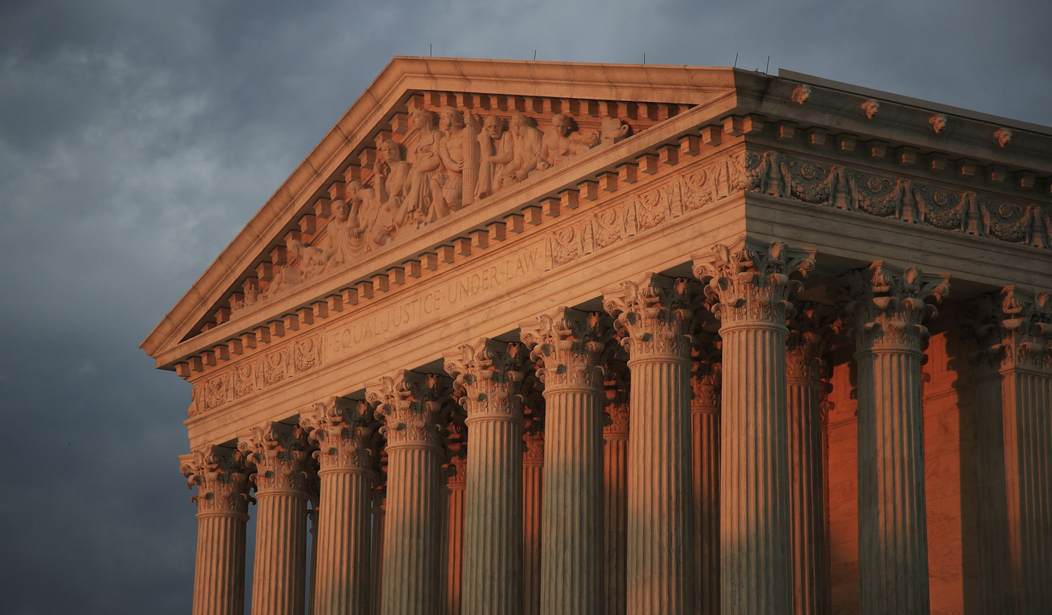The transgender movement is before the Supreme Court of the United States, seeking a redefinition of the term “sex" under Title VII.
The case is R.G. & G.R. Harris Funeral Homes Inc. v. EEOC. The funeral home company was sued by the EEOC after they fired a funeral director, Anthony Stephens / Aimee Stephens. The company’s employees, upon commencement of employment, “agree to follow a professional, sex-specific dress code,” their lawyers explain. The dress code is considerate of the delicate needs of grieving families. After about six years of employment as a male funeral director, Stephens informed the company that he is now going to live as a female named Aimee and dress as a female at work. The company carefully considered the impact this would have on their clientele and how Stephens sharing a bathroom with grieving widows would cause them further discomfort. The company asked Stephens to continue dressing like a man and to use men’s bathroom facilities while at work, something he agreed to do when he accepted the terms of employment as a male. Stephens declined to do so and filed a complaint with the EEOC, which then sued the funeral home company for discrimination under Title VII.
The EEOC is asking the Supreme Court to judicially amend the word “sex” to include “transgender status.” The funeral home company disagrees with this radical redefinition, and asks the Supreme Court to enforce the original congressional definition, which they describe as “biological sex, something fixed and objectively ascertained based on chromosomes and reproductive anatomy.”
As of today, 95 amici briefs representing different interest groups have been filed with this case. Amici briefs are legal memoranda to showcase a special-interest position in a case pending before the Supreme Court. Ninety-five is a large number of special interest groups, even by Supreme Court standards.
Heightened interest in the transgender issue is seeping in from leftist and LGBT groups, which have taken the side of the EEOC — at the expense of women. American females make up 50.8% of our population while transgender individuals make up 0.6%. Typical leftists rushed to support the perceived minority at the expense of the majority in this instance - women.
Real proponents of women’s rights should be very worried. The legal theory peddled by the EEOC will demolish the discrimination protections drafted by Congress to protect women.
American women only obtained the right to vote in 1920. Sex was deemed by Congress as a special, protected class decades later in 1964 due to public recognition of centuries of discrimination against females throughout the globe. Congress sought to even the playing field with Title VII. This protection is now on the line. Why? Because the idea of “gender identity” obliterates the concept of female sex entirely. Female is shifted from objective legal fact to subjective opinion and speculation. If anyone can claim to be a female, then the laws forbidding discrimination against women are rendered entirely meaningless. If anyone can be a woman, then no one is a woman. To embrace “gender identity” necessitates an abolition of special protections for our women and girls.
Recommended
At least some women's groups are aptly concerned.
A liberal special interest group, the Women’s Liberation Front, which defines itself as “radical feminists” in its amici brief, is siding with the funeral home company. “Legally redefining ‘female’ as anyone who claims to be female results in the erasure of female people as a class,” they argue, bringing up many of the same points found in the briefs submitted by Christian Conservative groups, an unusual accord for a feminist group. “If, as a matter of law, anyone can be a woman, then no one is a woman, and sex-based protections in the law have no meaning whatsoever.”
A conservative female group joined their liberal counterpart in the outrage. The Independent Women's Forum filed a brief discussing the consequences that the Supreme Court's ruling in this case will have on female sports and female athletes. They brought up the biological advantages that males born with an XY chromosome have in sports — from 36% larger muscle mass to thicker and denser bones to larger lung capacity. Indeed, as we have seen over the past couple of years when biological males decide to “transition” into females and join female sports, they dominate and win, obliterating their true female competitors.
Willieta Burlette Carter, Professor Emerita of Law The George Washington University Law School, scolded the EEOC on their abandonment of women’s interests, writing in her brief, “EEOC failed to consider the rights of women and girls.” She argued that the EEOC theory of “gender identity” as a protected class under Title VII is simply not supported by substantive law. Her complex legal argument boils down to willing it so, doesn’t make it so.
The most surprising support for women came from a brief filed by a group of transgendered individuals. They agree that Title VII “sex” is grounded in biology, “fixed at conception, and objectively verifiable.” They explain that gender identity issues are within the mind, not the body. They acknowledge a critical point: the belief that one is a woman is not equivalent to being born with XX chromosomes.
Dr. Paul R. McHugh, Distinguished Service Professor of Psychiatry at the Johns Hopkins University School of Medicine, filed a brief explaining the difference between politics and science in the realm of gender identity. Dr. McHugh’s brief concentrated on the difference between “ideological pronouncements” and scientific evidence, concluding that "sex, from a medical standpoint, does not include gender identity.” Dr. McHugh’s position was echoed in a brief submitted by a group of 50 distinguished professors who called out “gender identity” as “metaphysical constructs of dubious ideological and political origin.”
The Supreme Court will hear oral argument in October. I, woman, hope that the protections under the law for my gender will not be compromised to appease the left’s political interests du jour.

























Join the conversation as a VIP Member